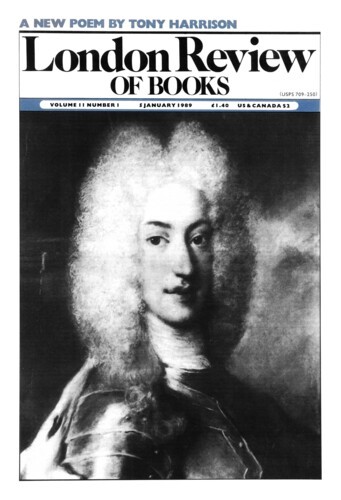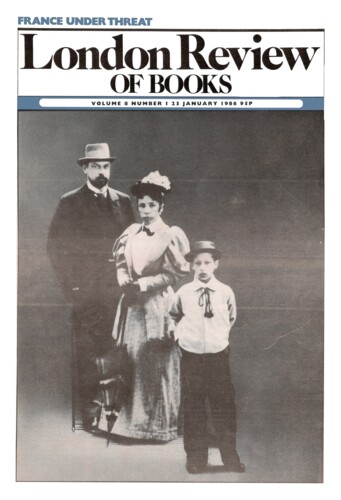Collected Works
Angus Calder, 5 January 1989
The Book of Genesis explains that work is a punishment inflicted on humans for Adam’s Fall. In the Authorised Version, God tells Adam: ‘In the sweat of thy face shalt thou eat bread, till thou return unto the ground.’ The New English Bible translates as ‘labour’ what King James’s scholars called ‘sorrow’ – ‘Accursed shall be the ground on your account. With labour you shall win your food from it.’ A few pages later comes the very odd passage in which Noah’s son Ham sees him naked when drunk. Awakening from his stupor, Noah curses Ham’s son Canaan – ‘a servant of servants shall he be unto his brethren’ – and this text was used by Early Modern Europeans to justify the translation of black Africans into the doleful state of chattel slavery.’




